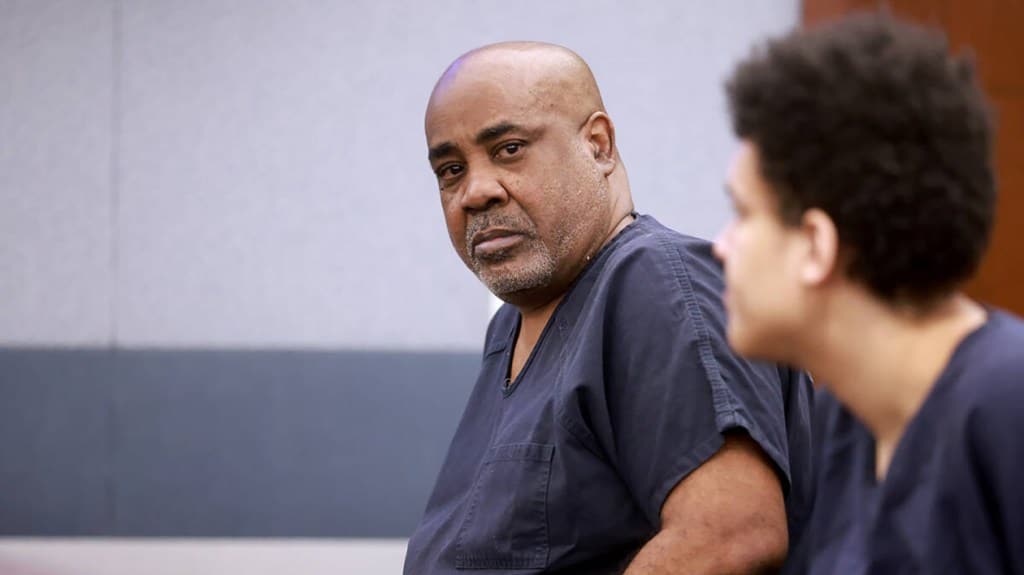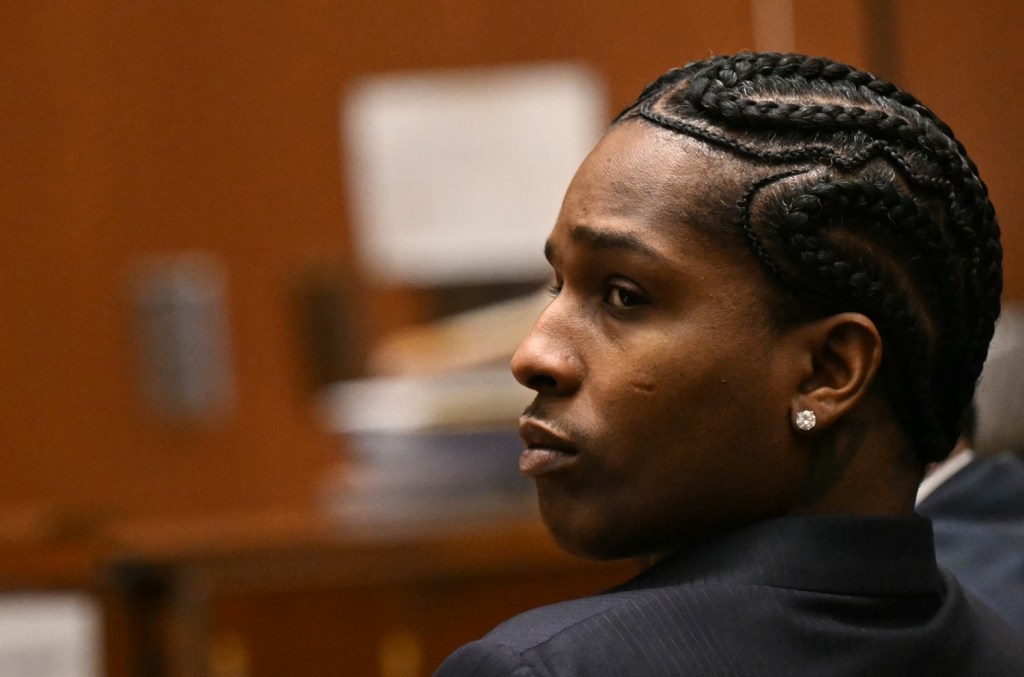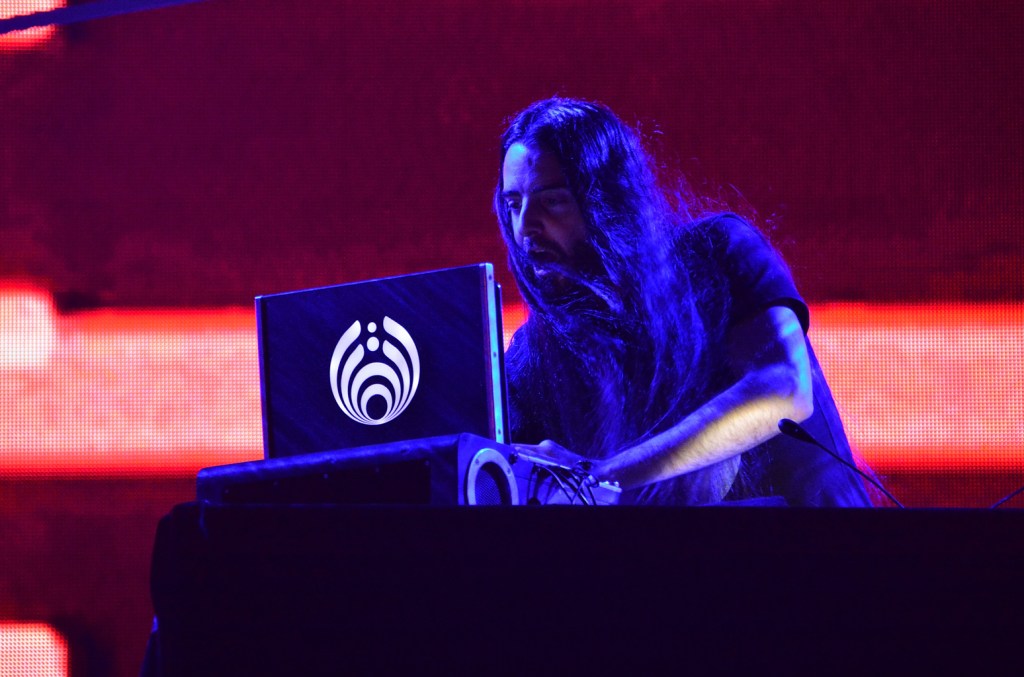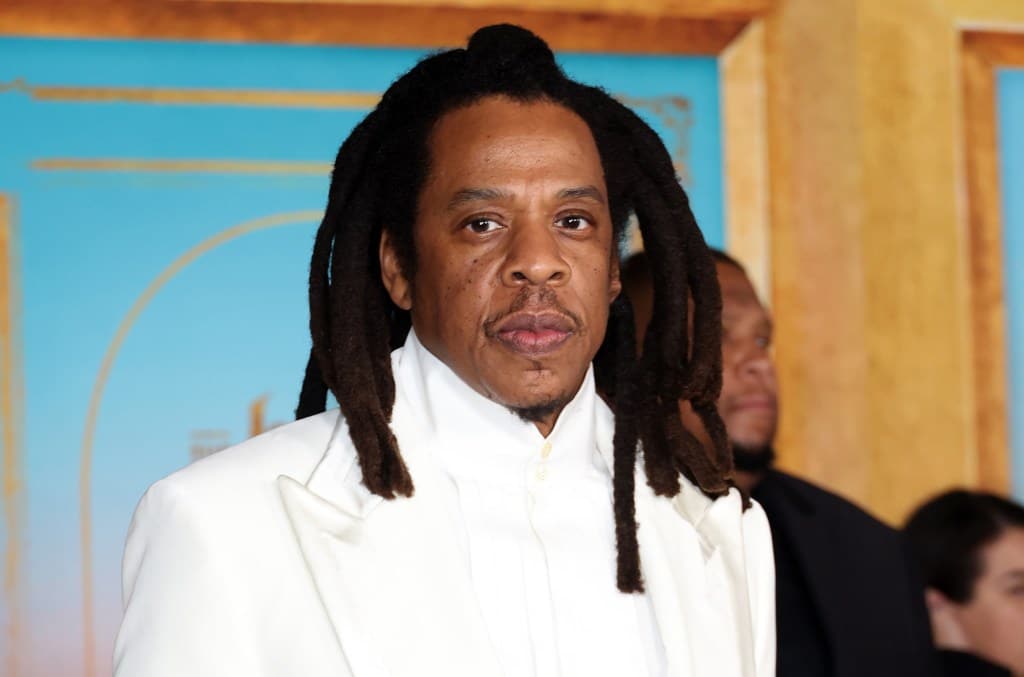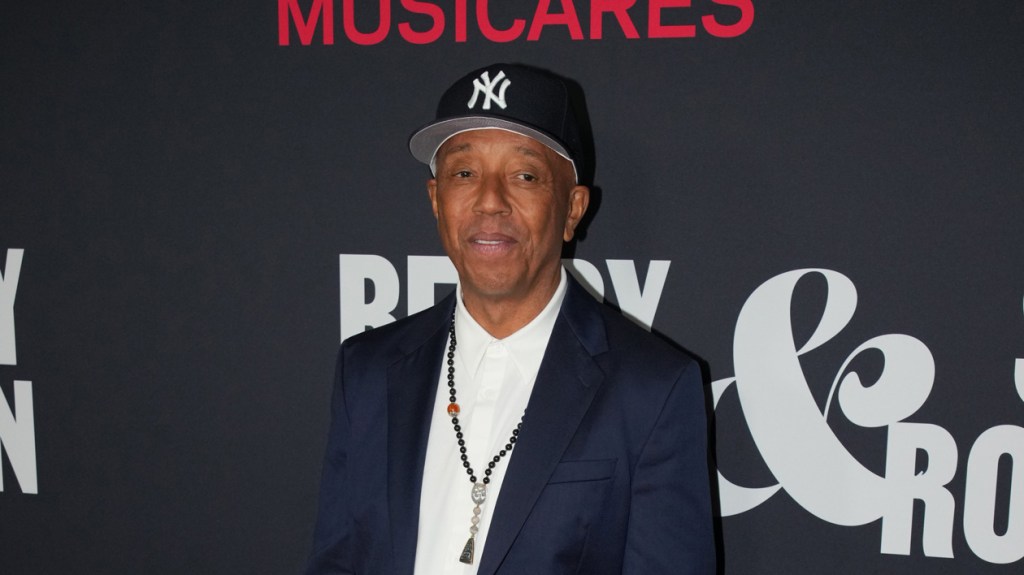Legal News
Page: 30
An attorney for The 1975 says frontman Matt Healy and his bandmates cannot be held responsible for the cancellation of the July 2023 Good Vibes Festival in Kuala Lumpur, which was shut down by authorities after Healy kissed one of his male bandmates on stage, violating the country’s ban on same-sex relationships. As a result […]
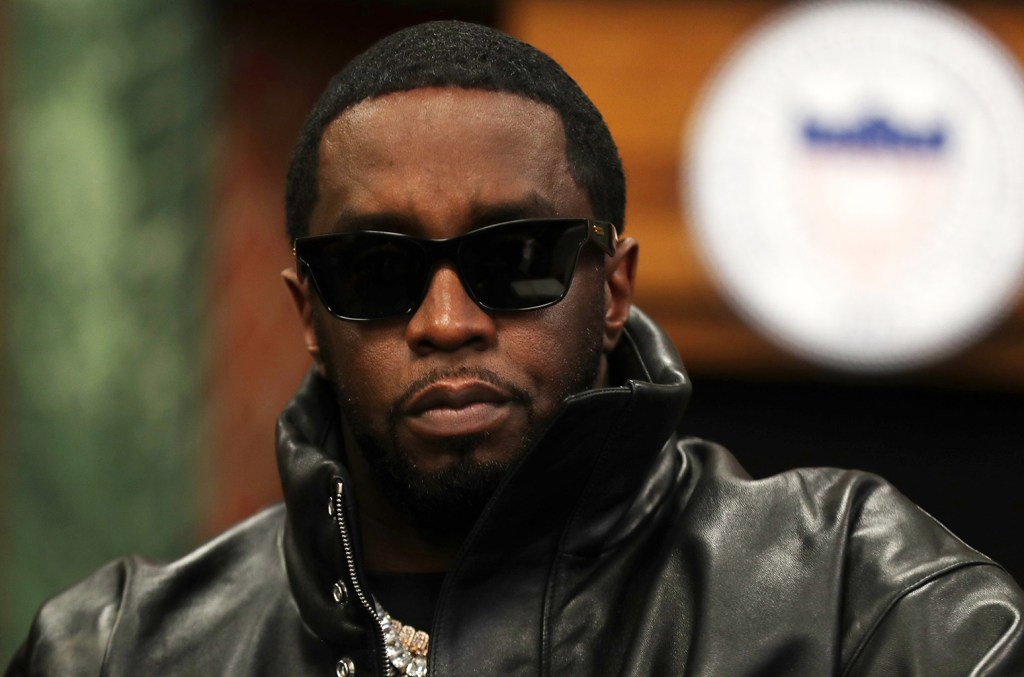
Sean “Diddy” Combs‘ attorneys have filed a motion seeking the dismissal of a sex trafficking charge in the hip-hop mogul’s indictment, citing the alleged racist origins of the count. Combs’ legal team, which made the filing official on Tuesday (Feb. 18) in New York federal court, argues that “no white person has ever been the […]
A Nevada judge on Tuesday postponed the murder trial of the only suspect ever charged in the 1996 killing of rap icon Tupac Shakur for nearly a year, saying she had little choice given new developments presented by his defense attorneys and the need to ensure a fair trial.
The trial of Duane “Keffe D” Davis, previously set for next month in Las Vegas, has been rescheduled for Feb. 9, 2026. The judge ordered prosecutors and the defense to return to court over the summer for a status hearing.
“It looks like there are quite a few things that are left to be done to get this case prepared so that Mr. Davis can have effective assistance of counsel,” Clark County District Court Judge Carli Kierny said during a short hearing.
Trending on Billboard
When asked by the judge if he was OK with moving the trial that far out, Davis agreed.
Davis’ defense team filed a motion Friday seeking more time, saying critical investigative work had to be done and witnesses needed to be interviewed to ensure he gets a fair trial. The lawyers said a private investigator identified witnesses who can testify that Davis was not at the scene of the shooting.
Attorney Carl Arnold, who is leading the defense, said the case involves decades-old allegations and critical facts have yet to be fully examined.
On the night of Sept. 7, 1996, Shakur was in a BMW being driven by Death Row Records founder Marion “Suge” Knight. They were waiting at a red light when a white Cadillac pulled up next to them and gunfire erupted.
Davis, an ex-gang leader who is accused of orchestrating Shakur’s killing near the Las Vegas Strip, has pleaded not guilty to first-degree murder and has been jailed since his September 2023 arrest.
Davis has acknowledged in interviews and in his tell-all memoir that he provided the gun used in the drive-by shooting and that he was in the car. But his court filings say his descriptions in recent years of orchestrating the shooting were “done for entertainment purposes and to make money.”
Arnold has argued that Davis never should have been charged because of immunity agreements that Davis says he reached years ago with federal and local prosecutors while living in California.
Prosecutors disagree, saying they have strong evidence against Davis and any immunity agreement was limited.
Defense attorneys also are raising questions about the manner of Shakur’s death, saying they have witness information indicating that he was in stable condition after the shooting and died suddenly after being hospitalized for a week. They want to consult medical and forensic experts to evaluate potential alternative causes of death.
This article was originally published by The Associated Press.
A$AP Rocky (Rakim Mayers) has been found not guilty on both counts in the shooting case involving his former friend and associate A$AP Relli (Terrell Ephron). The verdict, which the jury reached after about three hours, according to The Associated Press, was read in the downtown Los Angeles courtroom at 4 p.m. PT on Tuesday […]
A lawsuit accusing Bassnectar (born Lorin Ashton) of sexually abusing three underage girls has been settled ahead of trial. According to court documents filed in U.S. District Court in Tennessee on Tuesday (Feb. 18), the case against the electronic music producer was dismissed with prejudice, meaning it cannot be refiled, after the two sides reached […]
The civil lawsuit accusing Jay-Z (Shawn Carter) of raping a 13-year-old girl alongside Sean “Diddy” Combs in 2000 has been voluntarily dismissed, according to court documents filed on Friday (Feb. 14).
“Today is a victory. The frivolous, fictitious and appalling allegations have been dismissed,” Carter wrote in a post on Roc Nation’s official Instagram account. “This civil suit was without merit and never going anywhere. The fictional tale they created was laughable, if not for the seriousness of the claims. I would not wish this experience on anyone. The trauma that my wife, my children, my loved ones and I have endured can never be dismissed.”
The case was dismissed with prejudice against all defendants, meaning it cannot be refiled.
Filed in New York federal court in December, the complaint alleged that Carter and Combs drugged and assaulted the Jane Doe plaintiff during an after-party following the MTV Video Music Awards. The case arrived as an updated version of a previous lawsuit filed against Combs only.
At the time, Carter called the lawsuit a “blackmail attempt” designed to result in a settlement. He further called the Jane Doe’s attorney, Tony Buzbee — notable for filing a slew of sexual assault lawsuits against Combs — a “fraud,” a “deplorable human” and an “ambulance chaser in a cheap suit.”
In his Instagram post on Friday, Carter took further aim at Buzbee, writing, “This 1-800 lawyer gets to file a suit hiding behind Jane Doe, and when they quickly realize that the money grab is going to fail, they get to walk away with no repercussions. The system has failed.
“The court must protect victims, OF COURSE, while with the same ethical responsibility, the courts must protect the innocent from being accused without a shred of evidence. May the truth prevail for all victims and those falsely accused equally.”
In a statement sent to Billboard, Carter’s attorney, Alex Spiro, said the following: “The false case against JAY-Z, that never should have been brought, has been dismissed with prejudice. By standing up in the face of heinous and false allegations, Jay has done what few can — he pushed back, he never settled, he never paid 1 red penny, he triumphed and cleared his name.”
“Today’s complete dismissal without a settlement by the 1-800 attorney is yet another confirmation that these lawsuits are built on falsehoods, not facts,” said a lawyer for Combs in a statement. “For months, we have seen case after case filed by individuals hiding behind anonymity, pushed forward by an attorney more focused on media headlines than legal merit. Just like this claim, the others will fall apart because there is no truth to them. Sean Combs has never sexually assaulted or trafficked anyone—man or woman, adult or minor. No number of lawsuits, sensationalized allegations, or media theatrics will change that reality. We will continue to fight these baseless claims and hold those responsible. This is just the first of many that will not hold up in a court of law.”
Buzbee declined to comment on the dismissal.
This story was updated to add statements from Carter and Combs’ attorneys.
A Manhattan federal judge has tossed out a sexual assault lawsuit against Russell Simmons on grounds that he now lives in Indonesia, but legal problems still abound for the Def Jam co-founder.
In a decision issued Tuesday, Judge John Koeltl ruled that Simmons had shown by “clear and convincing evidence” that he is now a permanent resident of the Indonesian island of Bali, meaning his federal court lacked required form of jurisdiction to hear the case.
The ruling is a setback for the unnamed Jane Doe plaintiff, who sued Simmons last year over accusations that he raped her in the 1990s while she served as an executive at Def Jam. But the case can likely be re-filed in state court, where it would potentially not face the same issues.
In a statement to Billboard on Thursday, her attorneys vowed to do so – claiming Simmons was trying to “dodge accountability for his reprehensible behavior and escape litigation on procedural grounds.”
“From the beginning of this case, Simmons has claimed to be a stateless citizen domiciled in Bali, despite building his life and career in New York and taking advantage of his clear ties to the state when it benefits him,” said Kenya Davis, a lawyer at the firm Boies Schiller Flexner. “Our plaintiff is not deterred by this gamesmanship. We respect the judge’s decision, and we will see Mr. Simmons in New York state court.”
In his own statement, an attorney for Simmons praised the judge’s decision to dismiss the case: “Our justice system is based on rules and procedures,” said David Fish an attorney at the law firm Romano Law. “We are pleased that the court followed the rules of civil procedure and case law related to who can be brought into court.”
Asked about whether the case would continue in state court, Fish said: “I can’t predict what plaintiff’s counsel will do going forward.”
Simmons, who founded Def Jam Recordings in 1984 and later built a formidable hip hop empire, has faced a slew of abuse allegations since 2017 — first in an investigative article by the New York Times, then in a 2020 documentary film that featured interviews with numerous alleged victims.
Last year, Simmons was hit with two lawsuits over such claims. The first came from the Jane Doe at the center of this week’s ruling, who says that she was serving as a successful music video producer when she was “sexually harassed, assaulted, sexually battered, and raped by her boss.”
The other case came from Drew Dixon, a former A&R at Def Jam who accused Simmons of rape in both the Times article and the documentary. In her February 2024 lawsuit, Dixon accused Simmons of defaming her by suggesting during an interview that she was lying about the incident.
That case remains pending. Simmons had moved to dismiss Dixon’s lawsuit at the outset on free speech grounds, but that request was denied by a judge last week, sending the case toward more litigation and an eventual trial.
Simmons also faces additional litigation from three other accusers — Tina Klein-Baker, Toni Sallie and Alexia Norton Jones – who alleged in New York court filings last month that the hip hop mogul had reneged on confidential settlements that separately required him to pay them a total of nearly $8 million.
R. Kelly’s racketeering and sex trafficking convictions, along with a 30-year prison sentence, were upheld Wednesday by a federal appeals court that concluded the singer exploited his fame for over a quarter century to sexually abuse girls and young women.
The 2nd U.S. Circuit Court of Appeals in Manhattan ruled Wednesday after hearing arguments last March.
The Grammy-winning, multiplatinum-selling R&B songwriter was convicted in 2021 in Brooklyn federal court of multiple charges, including racketeering and sex trafficking.
Attorney Jennifer Bonjean, representing R. Kelly, said in a statement that she believed the Supreme Court will agree to hear an appeal. She called the 2nd Circuit ruling “unprecedented,” saying it gives prosecutors limitless discretion to apply the racketeering law “to situations absurdly remote” from the statute’s intent.
Last year, the high court declined to hear an appeal of a 20-year sentence Kelly received after he was convicted in 2022 of child sex charges including charges of producing images of child sexual abuse in Chicago.
The 2nd Circuit rejected Kelly’s arguments that the trial evidence was inadequate, the constitutionality of some state laws used against him were questionable, four jurors were biased, the trial judge made some improper rulings and a racketeering charge more commonly used in organized crime cases was improper.
“Enabled by a constellation of managers, assistants, and other staff for over twenty-five years, Kelly exploited his fame to lure girls and young women into his grasp,” the appeals court said, noting members of his entourage helped introduce him to underage girls.
“Evidence at trial showed that he would isolate them from friends and family, control nearly every aspect of their lives, and abuse them verbally, physically, and sexually,” the three-judge panel said.
The appeals court said it was “neither arbitrary nor irrational” that several accusers were permitted to testify at trial that Kelly gave them herpes without disclosing he had an STD, and it was not unduly prejudicial or cumulative that seven witnesses who were not yet adults when Kelly began to abuse them were allowed to testify.
“None of the testimony was more inflammatory than the charged acts,” the appeals court said.
The 2nd Circuit also said it was not unfairly prejudicial for the trial judge to let jurors view graphic videos. The videos, the appeals court said, “were properly admitted to show the means and methods of the enterprise, including the level of control and dominance Kelly had over his victims.”
Bonjean, in her statement on R. Kelly’s behalf, also cited a partial dissent in which one 2nd Circuit judge, Richard J. Sullivan, concurred with what he described as the majority’s “excellent opinion,” but dissented in part over a restitution award given one victim for a lifetime supply of a suppressive regime of herpes medication. The award was based on the cost of the brand-name drug when a generic drug is available.
“This was not restitution. This was an effort by the government to unfairly enrich government witnesses for their testimony,” Bonjean said.
Kelly, born Robert Sylvester Kelly, is known for work including the 1996 hit “I Believe I Can Fly” and the cult classic “Trapped in the Closet,” a multipart tale of sexual betrayal and intrigue.
Kelly sold millions of albums and remained in demand even after allegations about his abuse of young girls began circulating publicly in the 1990s. He was acquitted of child sexual abuse image charges in Chicago in 2008, but a second trial in Chicago in 2022 ended with his conviction on charges of producing images of child sexual abuse and enticing girls for sex.
Widespread outrage over Kelly’s sexual misconduct did not emerge until the #MeToo reckoning, reaching a crescendo after the release of the documentary “Surviving R. Kelly.”
This story was originally published by The Associated Press.
Sean “Diddy” Combs filed a lawsuit on Wednesday (Feb. 12) against NBCUniversal, claiming the company defamed him with the Peacock documentary Diddy: The Making of a Bad Boy.
According to documents filed in New York state court, Combs’ lawsuit claims the documentary — which debuted on Peacock in January — knowingly defamed him by making false murder and sex trafficking allegations, among other claims, which his attorneys say there is no credible evidence to support.
“The entire premise of the Documentary assumes that Mr. Combs has committed numerous heinous crimes, including serial murder, rape of minors, and sex trafficking of minors, and attempts to crudely psychologize him,” the lawsuit reads. “It maliciously and baselessly jumps to the conclusion that Mr. Combs is a ‘monster’ and ‘an embodiment of Lucifer’ with ‘a lot of similarities’ to Jeffrey Epstein.”
According to the lawsuit, the documentary “maliciously” claims that Diddy played a role in the deaths of his ex-wife Kim Porter, Christopher “The Notorious B.I.G.” Wallace and Dwight “Heavy D” Myers.
The documentary “shamelessly advances conspiracy theories that lack any foundation in reality,” the suit adds, “repeatedly insinuating that Mr. Combs is a serial killer because it cannot be a ‘coincidence’ that multiple people in Mr. Combs’s orbit have died.”
Combs is seeking $100 million in damages from the multimedia giant.
“As described in today’s lawsuit, NBCUniversal Media, LLC, Peacock TV, LLC, and Ample LLC made a conscious decision to line their own pockets at the expense of truth, decency, and basic standards of professional journalism,” Diddy’s attorney, Erica Wolff, said in a statement. “Grossly exploiting the trust of their audience and racing to outdo their competition for the most salacious Diddy exposé, Defendants maliciously and recklessly broadcast outrageous lies in Diddy: The Making of a Bad Boy.”
Wolff continued: “In the purported documentary, Defendants accuse Mr. Combs of horrible crimes, including serial murder and sexual assault of minors — knowing that there is no evidence to support them. In making and broadcasting these falsehoods, among others, Defendants seek only to capitalize on the public’s appetite for scandal without any regard for the truth and at the expense of Mr. Combs’s right to a fair trial. Mr. Combs brings this lawsuit to hold Defendants accountable for the extraordinary damage their reckless statements have caused.”
Billboard has reached out to NBCUniversal for comment.
Combs has remained behind bars since his arrest in September on sex trafficking and racketeering charges. He’s accused of being the face of a multi-faceted criminal enterprise with the goal of satisfying his sexual fantasies, including by hosting so-called “freak-off” parties. The disgraced hip-hop mogul has repeatedly been denied bail and will stay in the custody of Brooklyn’s Metropolitan Detention Center until his trial begins on May 5. He faces life in prison if convicted on all charges. In addition to his criminal case, Combs has been hit with dozens of lawsuits alleging sexual assault and other crimes.
A$AP Rocky waived his right to testify on Tuesday (Feb. 11) during the ongoing trial over accusations that he fired a gun at former friend A$AP Relli near a Hollywood hotel in November 2021. In a TMZ video, Superior Court Judge Mark S. Arnold reminds the former A$AP Mob rapper (real name Rakim Mayers) that he […]

 State Champ Radio
State Champ Radio 
